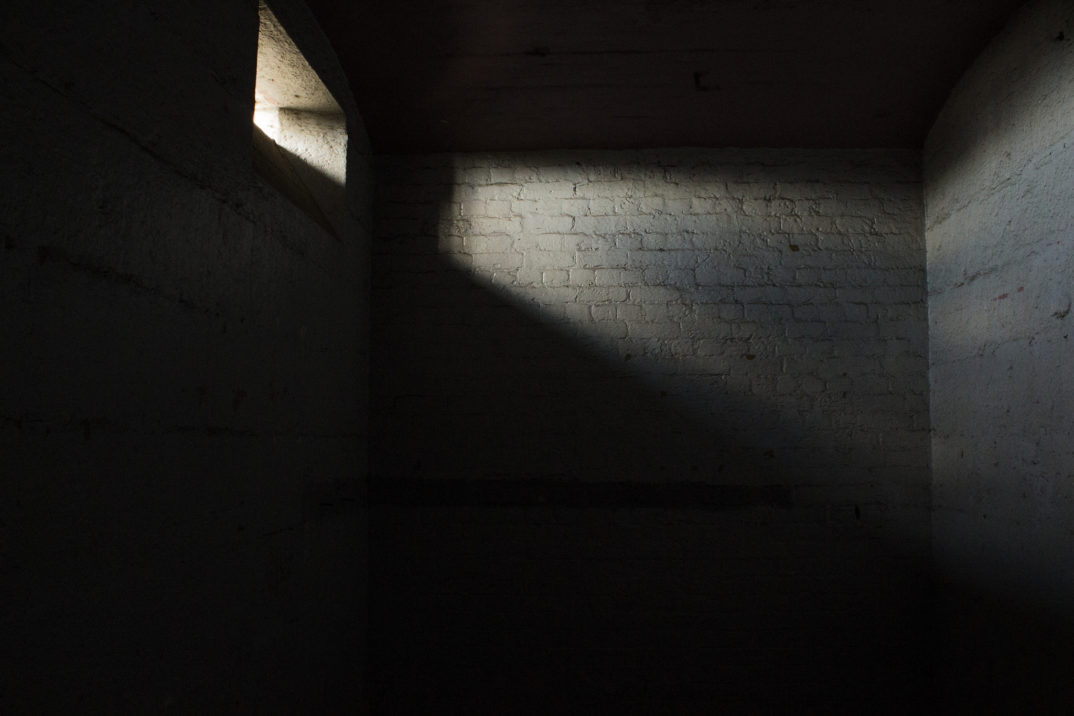Evaluating Solitary Confinement: A Matter of Values
Untidiness, tattooing, insolence towards a staff member, “reckless eyeballing,” and possession of an excessive quantity of postage stamps. These are all behaviors that are officially punishable by “restriction to quarters” and “change of housing” in the US Federal Prison System, according to Quartz. Thus, you can be placed in solitary confinement for relatively innocuous infractions, and the clear potential for abuse of this practice is one reason why the use of solitary confinement to punish prisoners has recently come under intense pressure. New York reached a legal settlement in 2015 with the New York Civil Liberties Union regarding the aggressive use of solitary confinement in its prisons, and a multi-year process was begun to lessen the times people spent in solitary confinement and to improve conditions in solitary confinement units.
Though public opinion has turned against solitary confinement, it still has its backers, not the least of which are those most knowledgeable with its use. The New York State Correctional Officers & Police Benevolent Association, for example, have been publicizing recent violent incidents at New York State prisons, suggesting that violence has worsened because prison guards have lost a necessary tool for control: the threat of solitary confinement.
Debates over the justifiability of solitary confinement mirror larger debates on the ethics of imprisonment. When we ask why the state is justified in depriving certain people who have committed crimes of their rights (to freedom, property, life, etc.), we commonly get two different answers. One is consequentialist. We are justified in harming these prisoners because such punishment has an overall positive effect on society. Locking dangerous prisoners up keeps the general populace safer from potential future crimes. The threat of punishment also motivates people to obey the law. Finally, punishment can help rehabilitate prisoners, thus restoring their ability to positively impact society.
The other answer is retributivist. We lock criminals up because they deserve it, and we see punishment as a fitting response to someone who has likewise transgressed another person’s rights. Accordingly, we try to make the harm of the punishment proportionate to the harm of the crime, regardless of whether the punishment is likely to rehabilitate the prisoner.
Consequentialist arguments have dominated recent debates over solitary confinement. Correctional officers who support solitary confinement defend it as an essential tool to protect themselves, as well as other inmates, from violent prisoners who cannot be controlled by other means. As noted by NPR, the head of the Correctional Officers’ union in New York, Mike Powers, argues, “Without the threat of solitary confinement… officers have less control. He cites state prison data showing the number of assaults on officers by inmates rose by a third over the last decade.” Prison reform advocates have questioned this narrative, pointing out that this increase in violence began long before the more recent reforms in New York began.
Prison reform advocates also appeal to the consequences of solitary confinement. Long-term solitary confinement is known to cause serious and irreversible psychological harms, including “extreme anxiety, anger, hallucinations, mood swings and flatness, and loss of impulse control.” People who were otherwise mentally healthy leave solitary confinement broken. According to Lisa Guenther, Vanderbilt University professor of philosophy, psychiatrists call this SHU (Security Housing Units) syndrome, while prisoners have used less clinical and more revealing terms such as “living death,” the “gray box,” or “living in a black hole.” All of this severely undercuts efforts at rehabilitation, as people who have experienced such intense psychological distress are unlikely to fully recover and be able to interact positively in the wider social world.
Retributive arguments concerning solitary confinement have been overlooked in these recent debates, and I suspect a significant portion of the population does not feel moved to oppose solitary confinement precisely because they feel on a gut level that violent criminals, like rapists or murderers, deserve the harm inflicted upon them in solitary confinement. In a rare article defending solitary confinement, Gregg Dobbs writes in The Denver Post, “Not every felon deserves to burn in hell, but some do. If solitary confinement is hell on earth, then we should still use it for the worst. They’ve earned it.” Do not ignore, as well, the flip side of retributive arguments. Some people feel equally strongly that there are some types of punishment that no one deserves, not even the worst of the worst. We call these kinds of punishments “inhumane.” The U.S. Constitution calls them “cruel and unusual.”
I suspect that the recent debates focus on consequentialist arguments because those seem more tractable. It is comparatively easy to debate statistical arguments, for example, as to whether an increase in prison violence is correlated with a decrease in the use of solitary confinement. It is much harder to debate questions of moral desert. Our views on what people deserve are often based on intuitions rather than principles, and people’s intuitions about acceptable punishment vary widely. Additionally, views on desert are often intermingled with religious views. Greg Dobbs used the language of hell to describe prisoners who deserved solitary confinement. Likewise, I suspect many people who think solitary confinement to be too inhumane to use would invoke religious metaphors about how people are made in the image of God as a reason why no person deserves certain horrible mistreatments.
Despite these difficulties, it is likely in the public interest that we debate these questions of retribution more openly, for I suspect that people’s more emotional and metaphysical beliefs about punishment and moral desert play a stronger role in their attitudes towards solitary confinement than the cut-and-dry consequentialist considerations.





